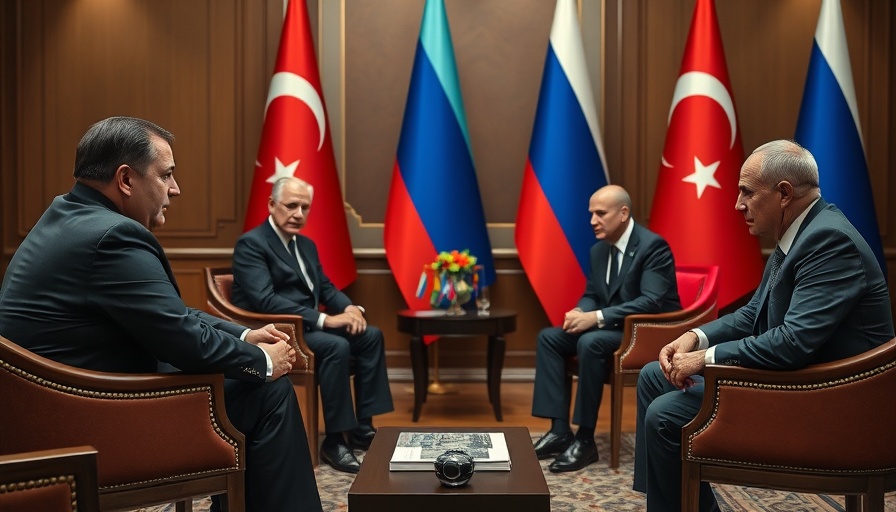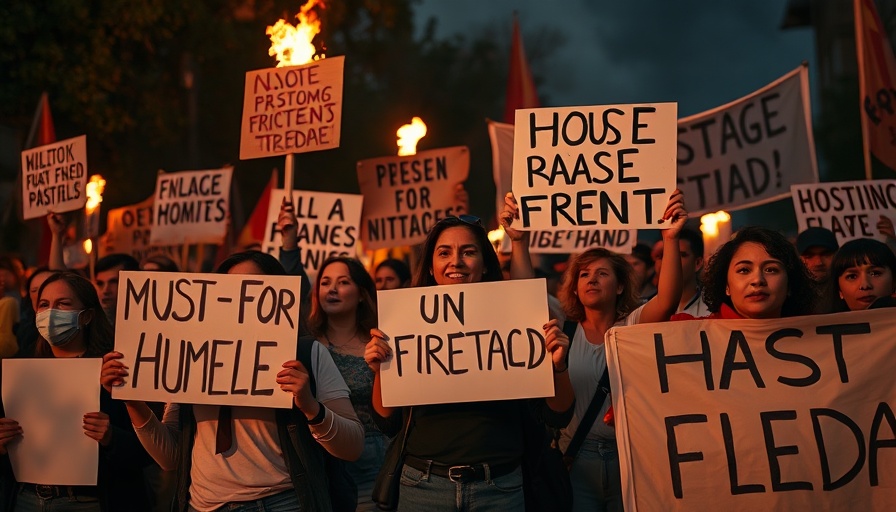
Prisoner Swap: A Glimmer of Hope in a Sea of Conflict
The recent talks between Ukrainian and Russian officials in Istanbul marked a significant diplomatic moment, occurring after more than three years of tension amid Europe's deadliest war since World War II. While the discussions were brief and marred by stark disagreements, they did yield a crucial breakthrough: a prisoner swap that will see 1,000 prisoners released from each side. This development is especially poignant for Ukrainian families waiting for news of their loved ones.
Turkey's Foreign Minister, Hakan Fidan, facilitated the meeting, emphasizing the importance of choosing a path toward peace rather than further destruction. Despite the lack of consensus on key issues like a truce, the focus on returning prisoners could signal a willingness to engage in further negotiations. Ukraine's Defence Minister, Rustem Umerov, hinted at upcoming opportunities for dialogue, stating that there should be a future meeting between President Zelensky and President Putin.
This is Diplomacy in the Face of Adversity
As Ukraine contends with ongoing aggression, the symbolism of the talks—a room adorned with flags from both nations—served as a reminder of the difficult road ahead. The half of the Ukrainian delegation dressed in military fatigues poignantly demonstrated the gravity of their situation. Furthermore, the negotiators' stark differences highlight the significant challenges that remain, with the Kremlin's insistence on Ukraine withdrawing its troops underlining their rigid stance.
Concerns Over Russia's Intentions
There are justified fears among Ukraine and its allies that Russia's engagement in these talks may be a strategic ploy to relieve international pressure for a ceasefire without any genuine commitment to peace. The rapid divergence from diplomatic rhetoric to bellicose comments from Russia—calling Zelensky a “clown”—illustrates a potentially insincere approach to negotiations.
The Broader Implications of the Talks
This exchange of prisoners is more than just a humanitarian gesture; it embodies the complexity of future peace negotiations. It raises questions about how both sides can navigate their differences to find common ground. While the immediate relief for families is palpable, this event could serve as a precursor for future discussions, embodying hope in the darkest of times.
As the world watches these developments unfold, the situation remains precarious. Ensuring continuous dialogue, even amidst severe disagreement, could be instrumental in eventually reaching a more lasting resolution. This highlights not just the value of international diplomacy but also the potential for small steps leading to significant change.
 Add Row
Add Row  Add Element
Add Element 



Write A Comment